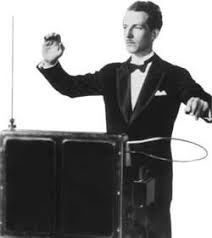The review was written by a friend of the poor man, and is favorable, as one would expect, not just on account of the friendship, but because Weakland is a good and articulate writer.
She feels the book is, on balance, honest.
I intend to read it….. eventually. I intend to do everything “eventually.” In truth, days pass and I seem to have done nothing, or more precisely, done a great deal but gotten nothing done.
Several things struck me in the review.
One is the reviewer’s insistence, (surely echoing the memoir itself?) that the man’s life has been anchored by the Rule of Benedict.
Is there nothing about particular friendships in the rule?
That surprises me.
Another is this peculiar revelation of her reaction when the Weakland blackmail scandal first broke:
when I heard that he had had an affair with a man and that there had been a cash settlement of $450,000, two thoughts converged: one, that he fell in love; two, that nobody in church leadership—bishop, cardinal, whoever—should have free access to large sums of money. I knew that canon law allows bishops to avail themselves of church funds if the amount is not $500,000 or more, and to do so without the involvement of the diocesan finance committee. But less ($450,000 in the Weakland case) does not require oversight. This distinction, while legal in the strict sense of church law, seemed to me to fail a basic ethical test, as normal people understand ethics. I thought at the time that canon law needs some fixing; I still think so.Really?
The law forbids an action beyond a certain limit, and someone obviously intent on doing something unethical or immoral knows that law and goes almost exactly as far as he can, violating the spirit of the law but not its letter, and your first thought is that the law ought to be changed?
Not that as sinners we will always seek ways to circumvent law and rules to which we pay lip service while trying not to get caught? and then lie to ourselves that we did nothing wrong?
(It is not strictly true that he went "almost exactly as far as he" could. He could have gone further, I suppose, and paid his ex-boyfriend $499,999. And ninety nine cents.)
But it seems likely that he knew what they could get away with without setting off alarms, I can’t give you half a million, people will be suspicious. Okay, I’ll take 450 thousand.
Gee, better change canon law, so we can effectively cap hush money payments bishops make to disgruntled former sex partners.
I didn’t know the amount of money up to which a bishop may avail himself no questions asked, but now that I do, the incident puts me in mind of nothing so much as several recent scandals involving homosexual predators who “groomed” their young victims, sometimes for years, while tkaing great care not to cross certain lines -- until eighteenth birthdays arrived.
Most intriguing of all, is the reviewer’s assertion that the book “raises big issues the church needs to grapple with honestly: the role of the laity in the contemporary church, and especially of women.“
I am curious as to how consternation about the place of women “especially” in the Church figures in the story of a man nearly destroyed by his closeted homosexuality.
Would the presence of galpals, (to use the kinder rhyming slang, and I’m not calling names, I’ve been one myself,) in the hierarchy have mitigated his SSA?
Can she possibly think the position of women be BETTER in a Church where gay men didn’t feel the need to hide their inclinations and their activities?
That is perfectly ludicrous.
But perhaps that’s not what she meant.
As I said, I intend to read the book.
Okay, but THIS is why you don’t get things done.
The train of thought, no, train of PAGES I was riding was New York Times Magazine -- The Red Book -- Jung -- Archetypes -- Catholics and Jung -- Catholics who hate Jung -- Catholics who buy Jung -- Leckey -- America -- Weakland…










